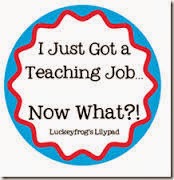Blog #3: Thonney and Academic Discourse
I was in grad school the first time I encountered academic discourse. I'm not talking about the five-paragraph essays you "get to" write in high school. I'm talking about the super dense, often confusing, 20-page tomes published by scholarly experts, to be read by scholarly experts, and which are assigned to people like you by people like me, the kind Teresa Thonney talks about in "Teaching the Conventions of Academic Discourse.*
I was so confused.
I didn't understand a thing.
No, that's not true. I understand snippets, and that was frustrating because those snippets didn't piece together to mean much. To make matters worse, it really seemed like everyone else in my class totally understood everything. I almost quit grad school. If I had, you wouldn't be in my class but that is a whole other thing.
After a while, I started to recognize the characteristics of academic writing, the ones Thonney describes, and I began to recognize the beautify of academic writing.
In this blog, talk about your own experiences with academic discourse, and then consider Thonney's claims and the benefits of the characteristics she introduces. You might also consider the ideologies reinforced or minimized by academic discourse or anything related to our topics of conversation.
*There are a couple reasons why I didn't see encounter in my undergrad: 1) I majored in French language and creative writing; 2) professors in the 1980s did not require students to read academic research papers and instead assigned textbooks.
I was so confused.
I didn't understand a thing.
No, that's not true. I understand snippets, and that was frustrating because those snippets didn't piece together to mean much. To make matters worse, it really seemed like everyone else in my class totally understood everything. I almost quit grad school. If I had, you wouldn't be in my class but that is a whole other thing.
After a while, I started to recognize the characteristics of academic writing, the ones Thonney describes, and I began to recognize the beautify of academic writing.
- It's straight and to the point, if not a little wordy.
- If you know how to find them, the argument and claims are plain.
- It's strongly based on evidence, which you can evaluate if you know how.
- It's not drenched in emotions or hyperbole or any of those clever devices advertisers and politicians do to convince you they are right and you should buy products or whatever policies they are selling.
In this blog, talk about your own experiences with academic discourse, and then consider Thonney's claims and the benefits of the characteristics she introduces. You might also consider the ideologies reinforced or minimized by academic discourse or anything related to our topics of conversation.
*There are a couple reasons why I didn't see encounter in my undergrad: 1) I majored in French language and creative writing; 2) professors in the 1980s did not require students to read academic research papers and instead assigned textbooks.


I have searched for my entire classmate who wrote about blog three but I found only you, Edward, and me who wrote about it since yesterday till this moment, so I decide to write a comment here. Through my experience the academic discourse was really helpful to me since I start my education journey at the United States. As others ESL students, academic discourse gave me the strategies of how to write a paper or how to plan for my paper in the right way that make it easier to the audience to understand my opinion. Also, academic discourse has taught me how to give a credit to others with citations. In addition, academic discourse, show me the right way to support my opinion with facts, reasons, and statistics. It is not that easy to learn different language but also to learn how to write in academic way therefor, these instructions are really helpful to me to improve my linguistic as well as my writing.
ReplyDelete